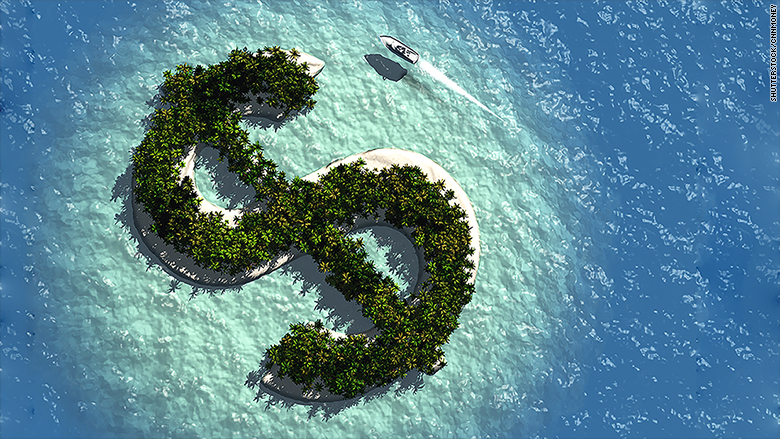
Bermuda, the Cayman Islands and the British Virgin Islands are more than just sunny vacation spots.
They're also three of the biggest tax havens for U.S. companies, according to a report from the left-leaning Citizens for Tax Justice and the U.S. Public Interest Research Group.
The islands are known to house subsidiaries of powerful multinational giants. Companies can filter their profits through business units on these islands to avoid high corporate taxes back in the U.S.
According to the report, U.S.-controlled companies on the three islands reported $155 billion in profits in 2010, the most recent available data. By comparison, the gross domestic product of those countries that year totaled $10 billion.
Bermuda stood out -- booking about $94 billion in profits, dwarfing its gross domestic product of $6 billion.
Related: Why Puerto Rico attracts billionaires despite economic woes
The report was released in the same week that G20 finance ministers are coming together in Lima, Peru, to finalize new international tax rules designed to close corporate tax loopholes.
The Organization for Economic Co-operation and Development estimates that tax loopholes allow companies around the world to legally dodge as much as $240 billion in taxes per year.
The proposed rules, which have been in the works for two years, have drawn praise from many observers, but some say they haven't gone far enough.
"The current reform efforts ... [take] steps in the right direction but much more needs to be done to address the core deficiencies of our system for taxing global corporate profits," said Joseph Stiglitz, a professor and Nobel Prize winning economist.
Over 60 countries have participated in formulating the new tax rules, which would clamp down on "aggressive tax planning arrangements" by corporations and encourage countries to share more tax information.


